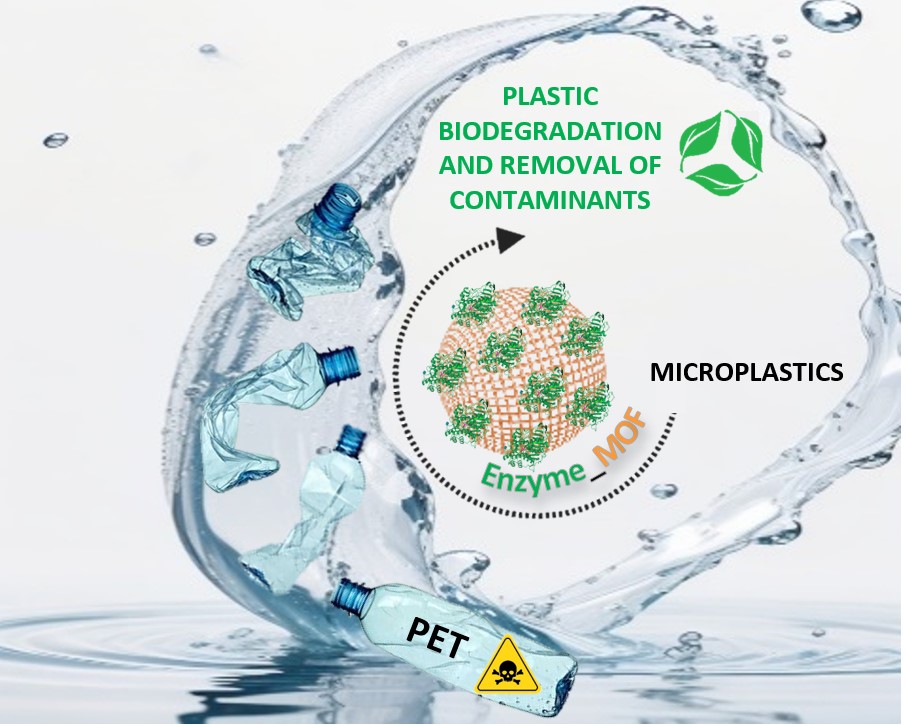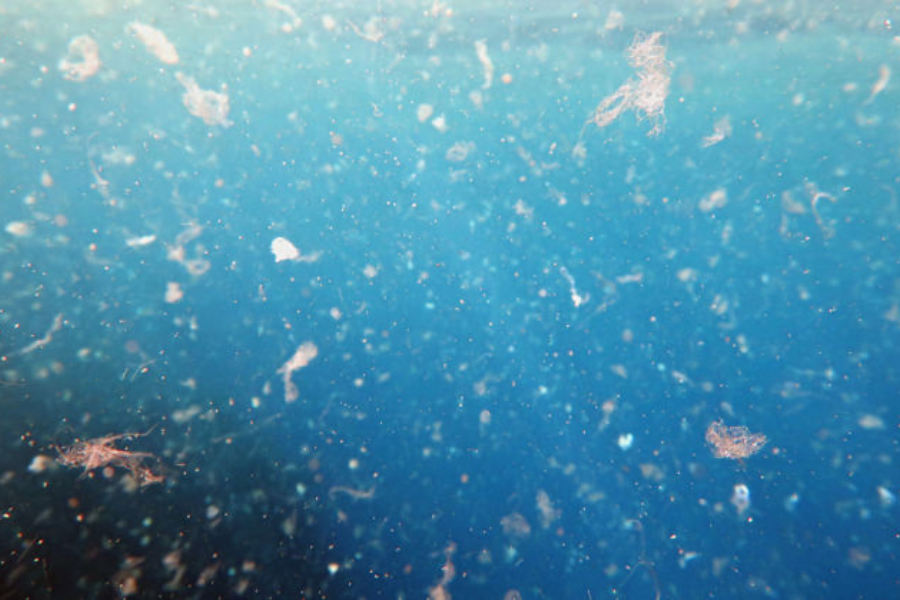IMDEA Energy studies new materials capable of degrading microplastics in water
The incidence of plastics in the environment resulting from excessive human consumption has led to unsustainable accumulation in both aquatic and terrestrial ecosystems, seriously impacting human and environmental health. This problem is aggravated by the inefficient removal of pollutants in existing wastewater treatment plants, which lack the necessary technology, making it urgent to develop new techniques.
In this context, research at IMDEA Energía has focused on the study of platforms/composites composed of porous materials, metal-organic frameworks (MOFs), combined with enzymes to promote the degradation processes of these microplastics present in water.
Through the evaluation of ten MOF prototypes, researchers at the Institute’s Advanced Porous Materials Unit have immobilised the enzyme Candida Rugosa Lipase, finding that the resulting composites were effective at degrading bis(hydroxyethyl)terephthalate (BHET), a by-product of PET plastic, typically used in the manufacture of water bottles. In just one day, the composite was able to remove 37% of the BHET and even erode the surface of real plastics, demonstrating its effectiveness and stability.
For the first time, it has been demonstrated here that these MOFs are capable of fragmenting the real surface of a plastic from a commercial water bottle, thus configuring a scenario that is closer to reality.
The results obtained therefore represent a step forward in the design of smart materials for the efficient removal of micro/nanoplastics that constantly arrive at water treatment plants and offer a promising strategy to contribute to a cleaner and more sustainable future.




